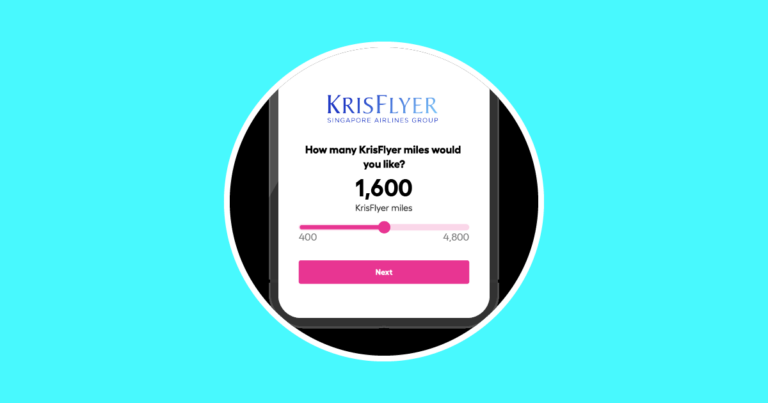How To Travel On A Student Budget & #SaveMore

This article covers:
- 1. Plan, Plan, Plan
- Step #1. Create A Travel Budget
- Step #2. Research Well
- 2. Travel During The Off-Season
- 3. Look For ‘Savings’
- 4. Find Student Discounts
- 5. Go ‘Off-The-Beaten-Path’
- Immerse yourself in the unforgettable art, history and culture of these places:
- If you’re a foodie, you should try:
- If you want to party on a tight budget, check out:
- 6. Spend Your Money On Experiences, Not Things
- 7. Find Legit Volunteering Gigs
- 8. Work While You Travel
Life as a student can really be tough at times. Struggling with assignments, exams and stressing about the competition can really take a toll on one’s mind.
Having said that, one can’t overlook the countless blessings that being a student brings to one’s life as well.
Of the many pleasures of student life, the most precious is the time and opportunity to travel the world. With plenty of breaks and great discounts at your disposal, one has the freedom to explore the world.
Research has shown that travel has transformational value for everybody. It can improve one’s physical and mental health, help one develop healthy relationships with others and with oneself, reduce stress and even make one a happier person. The only dampener to all of these dreams, however, could be money. But hey, don’t lose heart! We have some good news here!
Exploring new places doesn’t have to cost a fortune and you certainly don’t need to win the lottery to travel the world. In this article, we’ll tell you about some practical ways to travel on a tight student budget without breaking the bank!
1. Plan, Plan, Plan
Planning a trip makes sense for everybody, but for students who are on a tight budget, it’s extremely crucial. Your travel plan should include everything from finances, air travel and accommodation to trip duration, activities and visas. Here are some useful tips:
Step #1. Create A Travel Budget
Your budget should include some or all of the following details:
You Might Be Interested In: A Complete Cost Sheet for your travel to the UK for ICC Cricket World Cup
- A realistic estimate of expenses without taking a lawn or selling assets.
- Recurring expenses such as airfare, domestic conveyance, accommodation, food, sightseeing, shopping, etc.
- Pre-departure expenses such as visa fees, travel or international health insurance, medical check-ups, vaccinations, etc.
- Emergency funds to protect you against unforeseen events (over and above your travel insurance).
Step #2. Research Well
- Research well in advance about the place and also keep in mind the season and currency exchange rates.
- Explore blog forum and seek advice from student travellers.
- Look for a money transfer service provider that offers low-cost overseas money transfers.
- Find out about international debit or credit cards offered especially to travellers.
You Might Also Be Interested In: Planning to Settle Abroad? Things You Must Know!

2. Travel During The Off-Season
If you have ever flown internationally, then you probably already know that travelling to and from international destinations during peak seasons and holidays can burn a serious hole in your pocket. Avoid travelling during:
- Christmas
- New Year’s Eve
- Easter
- Thanksgiving
- Summer holidays
- Diwali
- Chinese New Year
3. Look For ‘Savings’
In addition to airfares and cheaper holiday destinations, there are plenty of other things you can do to save money. Check them out here:

4. Find Student Discounts
- Many hostels and pubs offer student discounts, so don’t leave home without your student ID card.
- The gold standard of student cards, the International Student Identity Card (a.k.a. the ISIC) can get you huge discounts at student hostels, travel passes (such as Eurail), flights and much more. If you qualify, apply!
5. Go ‘Off-The-Beaten-Path’
The most popular holiday destinations are usually the least student budget-friendly. Luckily, the world is a huge place and student travellers with itchy feet and limited budgets have plenty of other options to explore and enjoy. Give the big cities a miss and go for Eastern Europe, Asia, Africa and Central America.
Here are some ideas that don’t often appear on travel agents’ destination guides:
(Notice that many are in developing countries – more bang for your buck if you are from a developed country yourself!)

Immerse yourself in the unforgettable art, history and culture of these places:
- Varanasi, India
- Kazan, Russia
- Okinawa Island, Japan
- Killarney, Ireland
- Yerevan, Armenia
- Galle, Sri Lanka
- Reykjavik, Iceland
- Gallipolli, Turkey
- Freetown Christiania, Denmark
- Cartagena, Colombia
- Pondicherry, India
- Rajasthan, India
- Ha Long Bay, Vietnam (UNESCO World Heritage site)
- Jiuzhaigou Valley Scenic and Historic Interest Area, China (UNESCO World Heritage site)
- Brussels, Belgium
- Ulaanbaatar, Mongolia
- Belgrade, Serbia
- Tulum, Mexico

If you’re a foodie, you should try:
(Some of these cities have an amazing beverage and/or street food culture!)
- New Orleans, USA
- New Delhi, India
- Mumbai, India
- Montreal, Canada
- Beirut, Lebanon
- Juqueí, Brazil
- Eilat, Israel
- Gothenburg, Sweden
- Yerevan, Armenia
- Santiago, Chile
- Dakar, Senegal
- Wellington, New Zealand
- Melbourne, Australia
If you want to party on a tight budget, check out:
- Budva, Montenegro
- Ljubljana, Slovenia
- Beirut, Lebanon
- Mumbai, India
- Goa, India
- Budapest, Hungary
- Prague, Czech Republic
- Lagos, Portugal
- Belgrade, Serbia
- Montevideo, Uruguay
- Koh Phangan, Thailand
6. Spend Your Money On Experiences, Not Things
If you’re travelling on a tight student budget, wholesale-shopping for pounamu jewellery in New Zealand, khon masks in Thailand or bandhani scarves in India is probably not a financially sound idea.
By all means, buy a few mementos of your trip, but make sure you have the budget for shopping. If you don’t, you are better off spending your precious money on having new adventures, exploring new places, learning new things and gathering new experiences.
And remember that photographs make great mementos. Take as many as you want and share them with friends and family. If you’re convinced, here are a few offbeat activities you can try:
- Check out the amazing psychedelic sculpture art, natural luminescent rocks and man-made glowing objects at the Electric Ladyland museum in Amsterdam, Netherlands.
- Visit the one-of-a-kind Rumah Terbalik Upside Down House in Kota Kinabalu, Malaysia.
- Experience what it’s like to spend time in a real prison at Scotland’s Inveraray Jail (without committing a crime!)
- Enjoy free shows during the Sydney Festival in Australia or at the Sri Lankan community’s ‘Ganesh’ festival in Paris.
- Explore a few out-of-the-way neighbourhoods for free in Paris, Melbourne or Geneva and learn about their history, architecture and customs.
- Walk through London’s Leadenhall Market, a Victorian-era marketplace that was the setting for Diagon Alley and the Leaky Cauldron in the famous Harry Potter films.
- Experience the bygone era of the Cold War with a Soviet Bunker Tour at Vilnius, Lithuania.
7. Find Legit Volunteering Gigs
Volunteering abroad is a great way to turn a holiday into a meaningful life experience. Find a gig that provides free accommodation and/or food, especially to student volunteers. You may end up saving a lot of money.
Research such options and apply for them in advance, if required. Workaway.info provides a number of options for students interested in volunteering, farmstays, homestays with local families, working holidays and cultural exchanges. Gooverseas also provides a lot of information about volunteering gigs all over the world. Not all volunteering gigs are legit so do your research, especially if you have to pay some money while signing up.
8. Work While You Travel

WWOOFing is a unique way to explore the world while working on organic farms or ranches and earning some money. However some WWOOFing programmes may be volunteer-only and some may provide accommodation and/or food in exchange for your labour, but no money. Sign up for a paid programme so you can use the money on your travels.
Keep in mind that some countries may not allow you to work on a normal tourist visa. Find out if you need to apply for a working holiday visa and if you qualify.
You Might Be Interested In: 10 Things You Must Know About Working Holiday Visas
So, now that we have established that one doesn’t need to be a millionaire to explore the world, don’t contain the wanderer in you. All you need is some planning, a dash of common sense and a sense of adventure to make your dreams come true.
So, go out there and say, ‘Hello world!’
 Get the app
Get the app


























